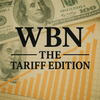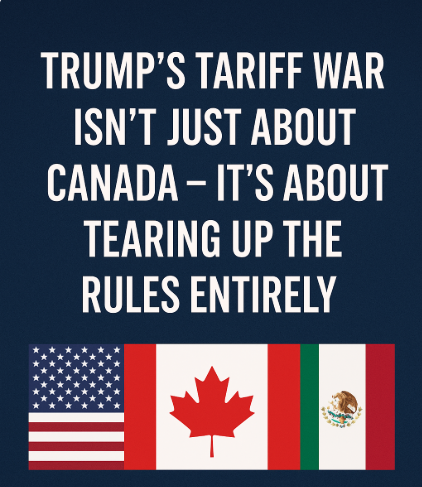Trump’s Tariff War Isn’t Just About Canada
As of August 1st, 2025, Canada entered a new era of economic confrontation with the United States. President Trump has imposed a sweeping 35% tariff on Canadian goods outside of CUSMA (also known as USMCA in the U.S.), triggering the worst trade turbulence in over a decade.





